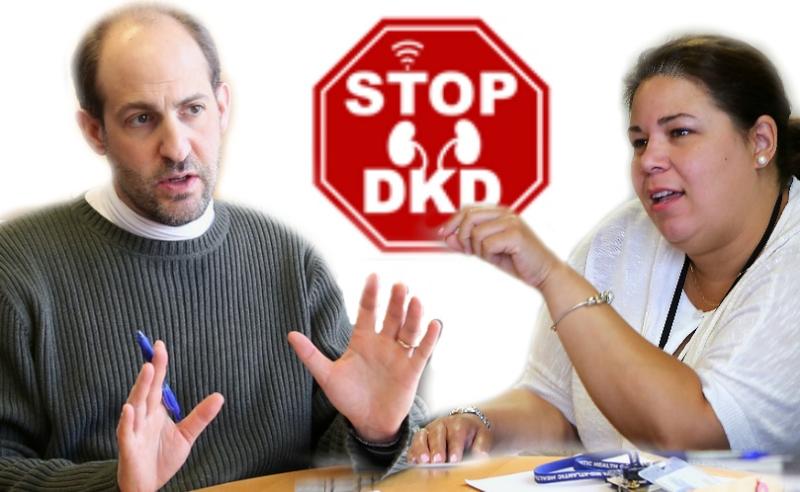
Type 2 diabetic kidney disease (DKD) is the major cause of end-stage renal disease (ESRD) in the United States and is a growing global health concern accounting for over half of all new cases and over $10 billion in medical expenditures each year. While many people with diabetes do not develop kidney disease, those who do have very poor outcomes. Among those with DKD, about 60% have uncontrolled hypertension that increases the risk of ESRD, cardiovascular events and death.
Improving the control of multiple risk factors can be effective in reducing progression and death in patients with diabetes. Reducing blood pressure, blood glucose, and lipoprotein levels, while also promoting smoking cessation, healthy dieting, exercise and weight control, can delay progression of DKD. Principal Investigators, Hayden Bosworth, PhD and Clarissa Diamantidis, MD are investigating whether or not medication management, behavior therapies, and education can slow the progression of DKD.
Here is the project summary:
Name of Study: Multi-factorial Intervention to Slow Progression of Diabetic Kidney Disease
Study Acronym: STOP-DKD
PI(s): Hayden Bosworth, PhD and Clarissa Diamantidis, MD
Funding Agency: National Institute of Diabetes and Digestive and Kidney Diseases (NIDDK)
Project Staff-
Study Coordinator: Megan M. Oakes, MS
Clinical Trials Assistants: Julie Miller, Shauna Malone, and Mark von Achen
Statisticians: Huiman Barnhart, Jane Pendergast, and Peter Merrill
Interventionists: Jivan Moaddeb, PharmD and Sejal Patel, RPh
Study Description:
STOP-DKD is a randomized, controlled clinical trial to slow diabetic kidney disease (DKD) progression using an innovative telehealth approach that simultaneously addresses medication management and behavioral therapies and education that can potentially optimize adherence and self-efficacy.
Intervention: Our intervention is pharmacist-administered and addresses multiple modifiable DKD risk factors (i.e. hypertension, poor glycemic control, smoking, obesity, etc.). Content delivered to study participants includes: medication therapy management, diet, exercise, weight loss, tobacco use, CVD and DKD knowledge and risk perception, and diabetes education. Study participants are also seen on annual basis for follow-up for 3 years.
Study Progress: STOP-DKD completed enrollment in December 2015, enrolling 281 participants. We are currently conducting both 1 and 2yr follow-up study visits.
____________________________________________________________________________________
Tell us about your clinical research or your projects in education or clinical practice.
Write to GIM Communications Strategist, Clare Il’Giovine